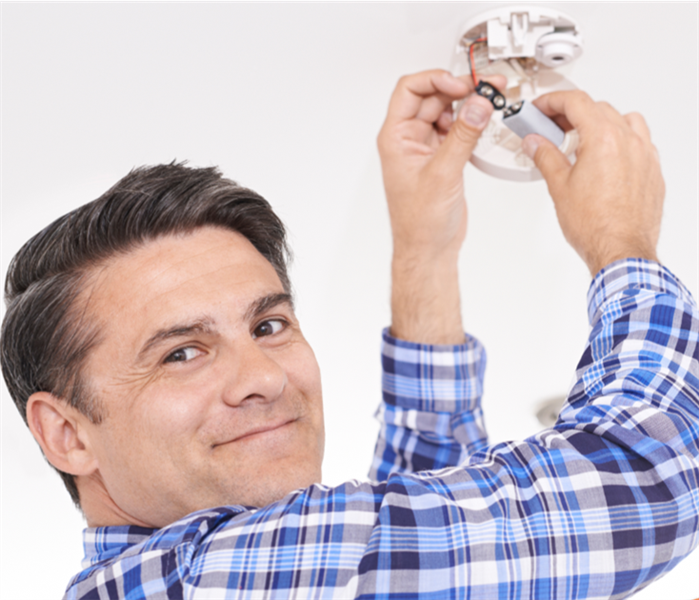Eliminating Heating Hazards This Winter
5/3/2018 (Permalink)
The winter season is in full swing! The days are shorter and temperatures are lower. No matter where you live, winter brings a change in weather. In an effort to keep our homes and workplaces cozy, many people use alternative heat sources like fireplaces, portable space heaters, and wood burning stoves. According to the National Fire Protection Association, heating equipment is responsible for an estimated $893 million in property damage annually. Heating is the second leading cause of residential fire deaths, making it important to review ways to help reduce the risk of a heating-related fire.
-Keep anything flammable at least three feet away from heating equipment, like the furnace, fireplace, wood stove or portable space heater. Have a three foot "Kid-free zone" around open fires and space heaters.
-Remember to turn portable heaters off when leaving the room or going to bed.
-Always use the right kind of fuel, specified by the manufacturer, for fuel burning space heaters.
-Make sure the fireplace has a sturdy screen to stop sparks from flying into the room. Ashes should be cool before putting them in a metal container. Keep the container a safe distance away from your home.
-Have heating equipment and chimneys cleaned and inspected every year by a qualified professional.
-Have a qualified professional install stationary space heating equipment, water heaters or central heating equipment according to the local codes and manufacturer's instructions.
Smoke Alarms Save Lives
Smoke alarms play a vital role in saving lives, and when properly installed, can reduce the risk of fire injury in half.
The National Fire Protection Association recommends smoke alarms be install in every bedroom, outside all sleeping quarters and on every level of the house. Business owners should consult the local Fire Marshall to ensure specific building fire codes and smoke detectors requirements are met.
Smoke alarms work best when paired with a fire escape plan. A plan allows your family, employees or client to escape quickly and safely in an emergency situation.
Review the following tips regarding smoke detector installation and maintenance.
-Install smoke alarms on every level of the home including the basement.
- Smoke alarms should be installed away from the kitchen to prevent false alarms. Generally, they should be at least 10 feet from a cooking appliance.
-Test smoke alarms at least once a month using a test button.
-Replace batteries in all smoke alarms at least once a year. If an alarm "chirps" the battery is low and should be replaced right away.
-Replace all smoke alarms when they are 10 years old.






 24/7 Emergency Service
24/7 Emergency Service